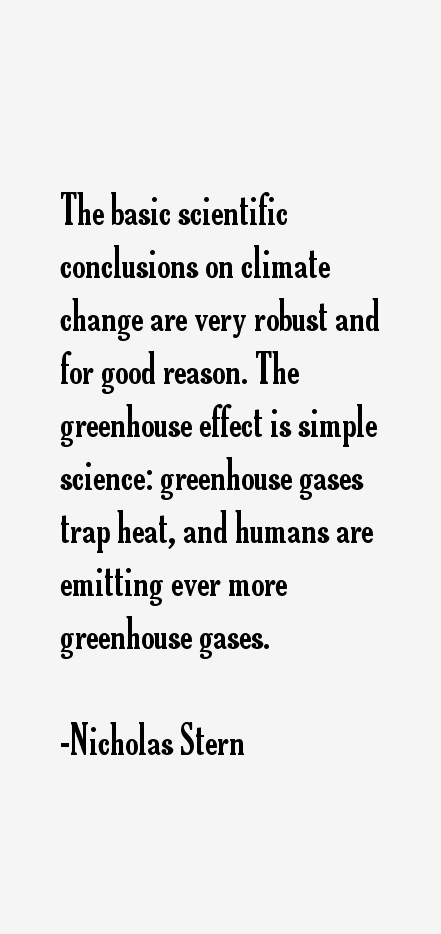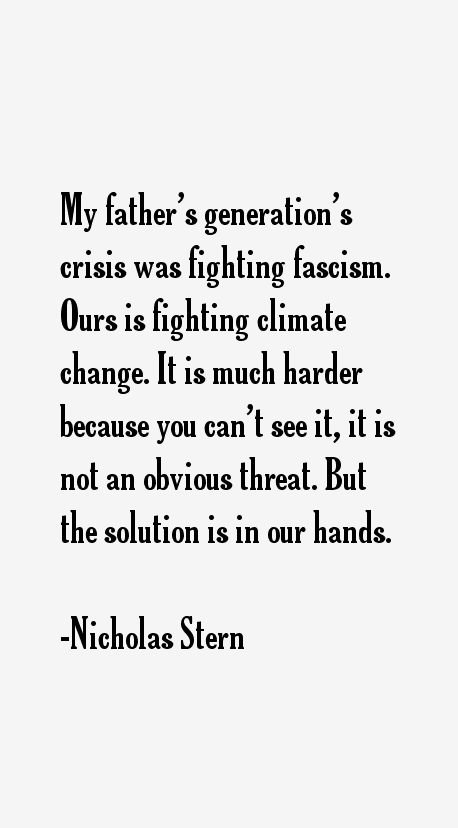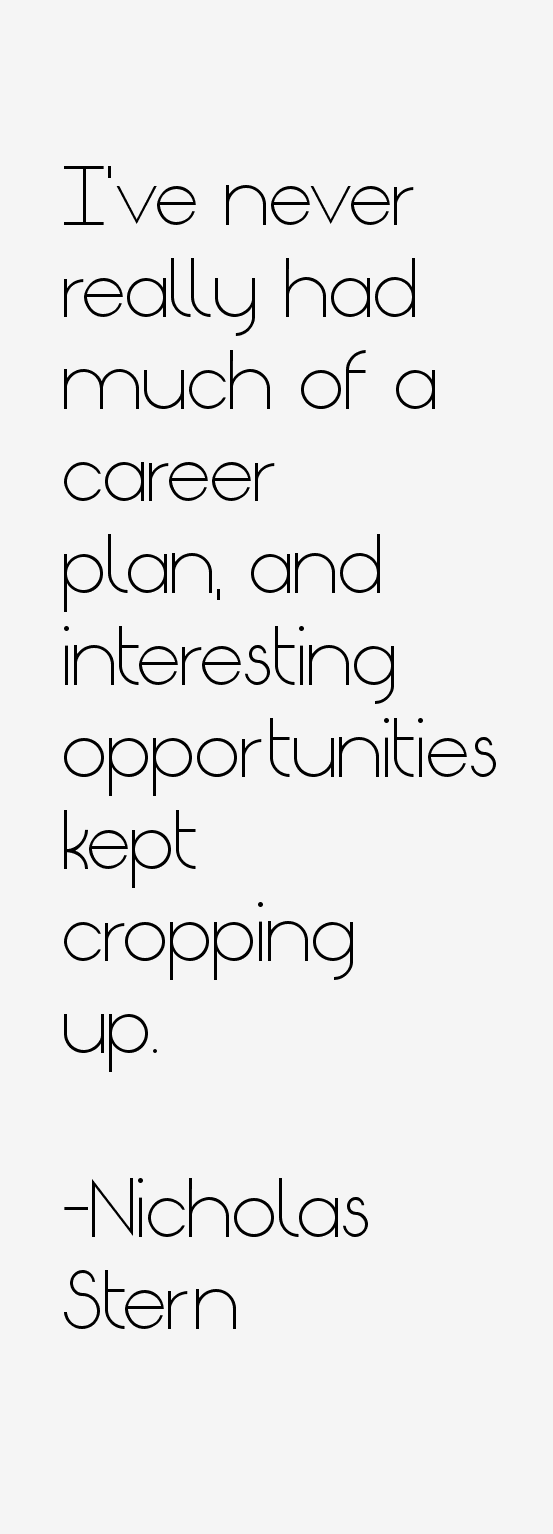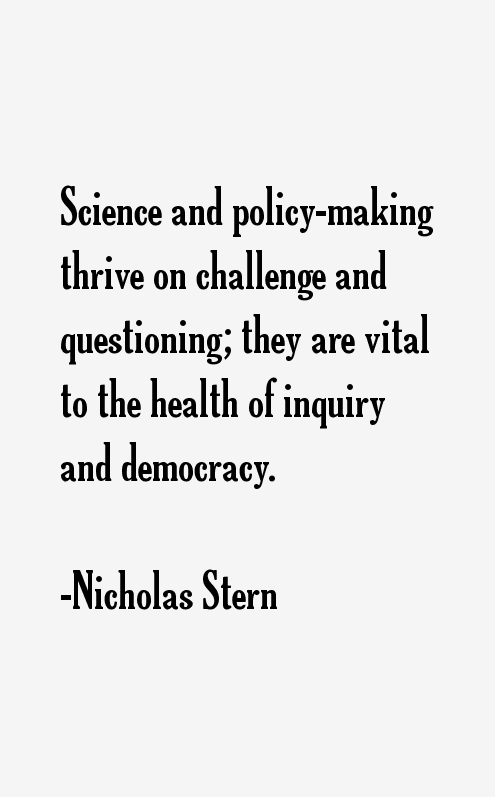Nicholas Stern Quotes & Sayings
21 most famous Nicholas Stern quotes and sayings (economist). These are the first 10 quotes we have.
“I think that once people understand the great risks that climate change poses, they will naturally want to choose products and services that cause little or no emissions of greenhouse gases, which means 'low-carbon consumption.' This will apply across the board, including electricity, heating, transport and food.”
“I think it's important that people think about what they are doing and that includes what they are eating. I am 61 now and attitudes towards drinking and driving have changed radically since I was a student. People change their notion of what is responsible. They will increasingly ask about the carbon content of their food.”
“How is it that, in the face of overwhelming scientific evidence, there are still some who would deny the dangers of climate change? Not surprisingly, the loudest voices are not scientific, and it is remarkable how many economists, lawyers, journalists and politicians set themselves up as experts on the science.”

“Enlightened self-interest from those involved in hydrocarbons should lead to the support of technologies enabling the clean use of hydrocarbons, such as carbon capture and storage, and not to the defence of deniers and cranks.”

“The basic scientific conclusions on climate change are very robust and for good reason. The greenhouse effect is simple science: greenhouse gases trap heat, and humans are emitting ever more greenhouse gases.”

“My father's generation's crisis was fighting fascism. Ours is fighting climate change. It is much harder because you can't see it, it is not an obvious threat. But the solution is in our hands.”
“Those who say that climate change doesn't exist are being understood as the flat-earthers that they are, as the people who deny the link between smoking and cancer, as the people who denied the link between HIV and AIDS.”

“Meat is a wasteful use of water and creates a lot of greenhouse gases. It puts enormous pressure on the world's resources. A vegetarian diet is better.”

“I've never really had much of a career plan, and interesting opportunities kept cropping up.”

“Science and policy-making thrive on challenge and questioning; they are vital to the health of inquiry and democracy.”
Nicholas Stern Quotes Rating
No Ratings Yet
Leave A Comment
























